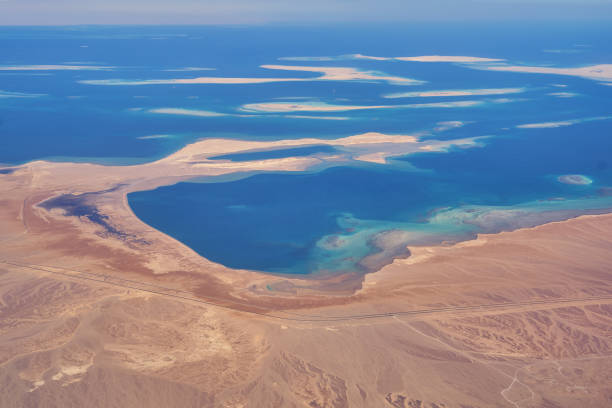
The Red Sea is an important maritime channel using the Suez Canal when it comes for ships to transport different goods such as oil and grains, recently the red sea has been under attack by the Yemen rebel group the Houthi which they are specifically targeting ships that are bound for Israeli ports. These attacks which were also backed back Iran in which it has caused more than 100 ships to have to reroute and use the Cape of Good hope in South Africa. With these attacks it is significant that there will be delays in delivery times which leads the disruption of international trade.
These attacks have raised concerns about the goods being shipped such as oil and grains because it might lead to increase in prices, for instance after the attack happened London’s insurance market deemed the area as high risk.
The Rebel group launched is attack on commercial ships in the Red Sea, including the MSC Clara and Norwegian-flagged Swan Atlantic. But these attacks just happen to come at a time when many factories are closed for Christmas, providing companies with a short period relief from difficulties in managing key supplies.
With its global influence, the United States has a pivotal role in addressing maritime tension. Defence Secretary Lloyd Austin says that the U.S., Japan, and others will form an at least 10 country Red Sea security coalition under Operation Prosperity Guardians. Austin stresses that the attacks by Houthi rebels are also a threat to freedom of commerce and mariners ‘safety. This will involve the UK, Bahrain, Canada, France, Italy, The Netherlands, Norway, Seychelles and Spain.
The scope seems wide, however, with 39 countries invited to participate in the coalition, why has China been excluded? The US argues that this exclusion is due to concern about the potential presence of China in there. The coalition hopes to serve as a deterrent, although it stresses this is not necessarily an escort mission. As to whether the naval forces will need closer escorts, this has been left open for an appraisal depending upon changing conditions.
This shows that although the establishment of a coalition portends greater resolve to combat security threats in the Red Sea, it remains to be seen whether or not they will succeed. Also, the fact that a large player like China is not included in the coalition makes things all more complicated. In addition, the characteristically unpredictable nature of maritime security problems means that a two-track strategy is needed beyond the use of force.
The establishment of the coalition is an important strategic event. It shows that protection of marine transportation routes has become a pressing matter involving developments in geopolitics. But the exclusion of China and the naturally nomadic character of maritime security dilemmas are major obstacles. But excessive reliance on military means is not enough, and political negotiations, dialogue and regional cooperation are indispensable. Even now that the US-led humanitarian assistance coalition is taking shape, it should be done in full awareness of all the dimensions involved in pacifying and protecting a vulnerable Red Sea. Such military coalitions are well-intentioned, but their usefulness in protecting global trade routes is a complex and difficult proposition.
While shipping companies continue navigating re-routed vessels, additional costs and exorbitant insurance rates, the global trade environment is in a state of unprecedented upheaval. Record highs for container rates and longer alternative routes around Africa emphasize just how severe the disruptions are. This fine ballet of international trade has now taken place against a background of uncertainty, with implications that reach much further than just the immediate issue on one part or another in the Red Sea region.
In conclusion, with rising tensions and increasing economic instability, effective diplomacy is crucial. Given the Houthi group’s calls for humanitarian aid to be allowed into Gaza and an end to Israel’ s siege, you can see that there are many tricky geopolitical undercurrents going on. Amid this turmoil, the world must learn to look for channels of negotiation and strengthen its economic defences as best it can. We should not be swept up in events over which we have no real control. The next few months will challenge whether the flexibility and coordination of nations can ensure maritime stability, preserve global trade routes at resistance to attack.
By The European Institute for International Law and International Relations
Refences
Bertrand, N., & Williams, M. (2023, December 20). US and allies scramble to respond to Houthi attacks on key red sea shipping lanes | CNN politics. CNN. https://edition.cnn.com/2023/12/19/politics/houthi-red-sea-attacks/index.html#:~:text=The%20strikes%20prompted%20Defense%20Secretary,commerce%20and%20endanger%20innocent%
Elimam, A., Stewart, P., & Solsvik, T. (2023, December 18). Vessel attacked in Red Sea off Yemen coast, US blames Houthis | Reuters. https://www.reuters.com/world/middle-east/ukmto-ambrey-report-possible-explosion-south-yemens-port-mokha-2023-12-18/
Meyer, H., & Tamo, O. (2023, December 20). Red Sea Crisis: Yemen’s Houthis vow more attacks, warn us of retaliation. Bloomberg.com. https://www.bloomberg.com/news/articles/2023-12-20/yemen-s-houthis-vow-more-attacks-on-ships-in-red-sea-despite-us-naval-force
Motamedi, M. (2023, December 20). Are Houthi Red Sea attacks hurting Israel and disrupting global trade?. Al Jazeera. https://www.aljazeera.com/news/2023/12/20/are-houthi-red-sea-attacks-hurting-israel-and-disrupting-global-trade















